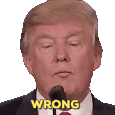"From the early 1990s he began combing normally closed official archives containing confidential reports of the ravages of the famine, and reading accounts of the official killing of protesters. He found references to cannibalism and interviewed men and women who survived by eating human flesh.
Chinese statistics are always overwhelming, so he helps us to conceptualize what 36 million deaths actually means. It is, he writes, “450 times the number of people killed by the atomic bomb dropped on Nagasaki” and “greater than the number of people killed in World War I.” It also, he insists, “outstripped the ravages of World War II.” While 40 to 50 million died in that war, it stretched over seven or eight years, while most deaths in the great Chinese famine, he notes, were “concentrated in a six-month period.” The famine occurred neither during a war nor in a period of natural calamity. When mentioned in China, which is rarely, bad weather or Russian treachery are usually blamed for this disaster, and both are knowledgeably dismissed....
....
The most staggering and detailed chapter in the narrative relates what happened in Xinyang Prefecture, in Henan Province. A lush region, it was “the economic engine of the province,” with a population in 1958 of 8.5 million. Mao’s policies had driven the peasants from their individual small holdings; working communally, they were now forced to yield almost everything to the state, either to feed the cities or — crazily — to increase exports. The peasants were allotted enough grain for just a few months. In Xinyang alone over a million people died.
Mao had pronounced that the family, in the new order of collective farming and eating, was no longer necessary. Liu Shaoqi, reliably sycophantic, agreed: “The family is a historically produced phenomenon and will be eliminated.” Grain production plummeted, the communal kitchens collapsed. As yields dived, Zhou Enlai and other leaders, “the falcons and hounds of evil,” assured Mao that agricultural production had in fact soared. Mao himself proclaimed that under the new dispensation yields could be exponentially higher. “Tell the peasants to resume eating chaff and herbs for half the year,” he said, “and after some hardship for one or two or three years things will turn around.”
I'm not sure what makes you,
@Rational Poster and
@HomerThompson think this quote has to be is some narrow western view of these events. Why can't it just be actual history? I don't understand the motives.
It's a quote by Yang Jisheng author of Tombstone.
He should know what he's talking about, he was there and has deep regrets.-
"When Mao was provided with a list of slogans for his approval, he personally added one: ‘Long Live Chairman Mao.’ ” Two years ago, in an interview with the journalist Ian Johnson, Yang remarked that he views the famine “as part of the totalitarian system that China had at the time. The chief culprit was Mao.”
Unnatural Disaster
‘Tombstone: The Great Chinese Famine, 1958-1962,’ by Yang Jisheng
In the summer of 1962, China’s president, Liu Shaoqi, warned Mao Zedong that “history will record the role you and I played in the starvation of so many people, and the cannibalism will also be memorialized!” Liu had visited Hunan, his home province as well as Mao’s, where almost a million people died of hunger. Some of the survivors had eaten dead bodies or had killed and eaten their comrades. In “Tombstone,” an eye-opening study of the worst famine in history, Yang Jisheng concludes that 36 million Chinese starved to death in the years between 1958 and 1962, while 40 million others failed to be born, which means that “China’s total population loss during the Great Famine then comes to 76 million.”
There are good earlier studies of the famine and one excellent recent one, “Mao’s Great Famine” by Frank Dikötter, but Yang’s is significant because he lives in China and is boldly unsparing. Mao’s rule, he writes, “became a secular theocracy. . . . Divergence from Mao’s views was heresy. . . . Dread and falsehood were thus both the result and the lifeblood of totalitarianism.” This political system, he argues, “caused the degeneration of the national character of the Chinese people.”
Yang, who was born in 1940, is a well-known veteran journalist and a Communist Party member. Before I quote the following sentence, remember that a huge portrait of Chairman Mao still hangs over the main gate into Beijing’s Forbidden City and can be seen from every corner of Tiananmen Square, where his embalmed body lies in an elaborate mausoleum. Despite this continued public veneration, Yang looks squarely at the real chairman: “In power, Mao became immersed in China’s traditional monarchal culture and Lenin and Stalin’s ‘dictatorship of the proletariat.’ . . . When Mao was provided with a list of slogans for his approval, he personally added one: ‘Long Live Chairman Mao.’ ” Two years ago, in an interview with the journalist Ian Johnson, Yang remarked that he views the famine “as part of the totalitarian system that China had at the time. The chief culprit was Mao.”



